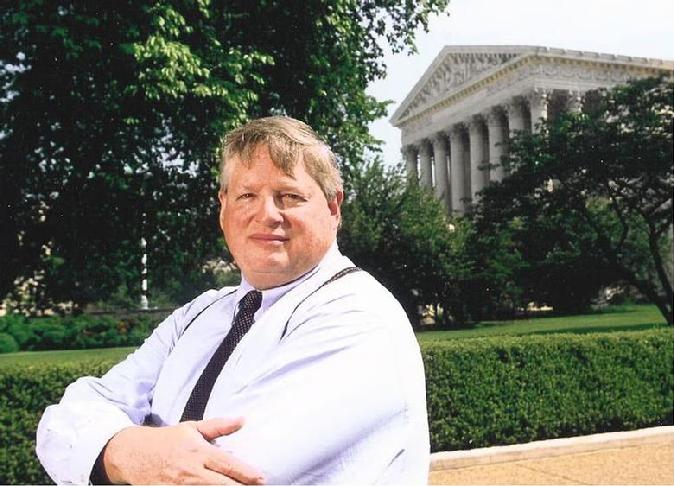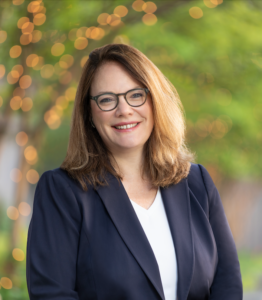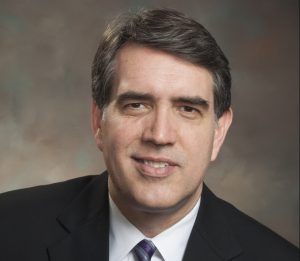On the anniversary of the September 11 attack on the United States, the United States Court of Appeals for the Ninth Circuit sitting in San Francisco reversed a lower court decision that had entered a permanent injunction against the State of California forcing two 501(c)(3) nonprofits to reveal their list of donors to the Attorney General of the State of California.
A variety of nonprofits filed amicus (friend of the court) briefs in the case Americans For Prosperity Foundation v. Xavier Becerra, in his Official Capacity as Attorney General of California, including the NAACP Legal Defense and Education Fund which had won a similar case in the Supreme Court of the United States in 1958 (NAACP v. Alabama ex rel. Patterson, 357 U.S. 449 (1958)) when the state government of Alabama attempted to secure a list of donors to NAACP.
Apparently, this precedent was insufficient to deter the Ninth Circuit’s ruling.
Writing for the panel of the Ninth Circuit, Judge Raymond C. Fisher wrote: “Considered as a whole, the plaintiffs’ evidence shows that some individuals who have or would support the plaintiffs may be deterred from contributing if the plaintiffs are required to submit their Schedule Bs to the Attorney General. The evidence, however, shows at most a modest impact on contributions. . . . The mere possibility that some contributors may choose to withhold their support does not establish a substantial burden on First Amendment rights.”
When presented with evidence of prior failures of the California attorney general to keep this information confidential, the Ninth Circuit decided: “We agree that, in the past, the Attorney General’s office has not maintained Schedule B information as securely as it should have, and we agree with the plaintiffs that this history raises a serious concern. The state’s past confidentiality lapses are of two varieties: first, human error when Registry staff miscoded Schedule B forms during uploading; and second, a software vulnerability that failed to block access to the Foundation’s expert, James McClave, as he probed the registry’s servers for flaws during this litigation.”
But the court went on to conclude in the face of that evidence, which had been persuasive to the lower court, “Nothing is perfectly secure on the Internet in 2018, and the Attorney General’s data are no exception, but this factor alone does not establish a significant risk of public disclosure. . . . Given the slight risk of public disclosure, we cannot say that the plaintiffs have shown ‘a reasonable probability that the compelled disclosure of personal information will subject them to threats, harassment, or reprisals.’ . . . In sum, the plaintiffs have not shown that compliance with the Attorney General’s Schedule B requirement will impose significant First Amendment burdens.”
An attorney general’s office that has been widely known to be politicized and certainly polarized in its activities relating to charities and a charity regulation regime that the former Attorney General Kamala Harris (now U.S. senator) put in place is now able to secure this information unless and until the Supreme Court overrules the Ninth Circuit. That regime, initially appointed by Harris, includes the senior assistant attorney general who oversees the Charitable Trusts Section, Tania Ibanez. In testimony cited in the opinion, she had testified that “getting a Schedule B through a[n] audit letter is not the best use of my limited resources” and Sonja Berndt, a deputy attorney general in the Charitable Trusts Section also cited in the opinion, had testified that attempting to obtain Schedule Bs through the auditing process “would entail substantial delay.”
Many in the nonprofit sector are aware of numerous other cases of politicized attorneys general offices using their power of regulation of charities and charitable solicitations to accomplish publicity at the expense of charities or worse (using their powers not for the public good but to achieve their political ends).
Meanwhile, back in Washington, D.C., the Internal Revenue Service (IRS) has taken a different tack. On Monday, July 16, 2018, the U.S. Department of the Treasury and the IRS announced that 501(c)(4) and 501(c)(6) tax-exempt organizations, among others, will no longer be required to disclose their large donors on their annual Form 990 filings, thus, eliminating this requirement for those two classifications of nonprofits. The IRS is incapable of eliminating the requirement for 501(c)(3) organizations because it is a statutory not a regulatory requirement. It would require amending the IRS Code.
The accompanying press release from the IRS indicates that public transparency will not be affected, since the IRS was already protecting donor information by redacting it when it published Form 990 filings. Nonprofits are still required to collect this information and make it available to the IRS on request (e.g. as part of an IRS audit). The IRS indicated the change is intended to better protect donor information and to simplify tax administration both for the IRS and nonprofit organizations. The nonprofits will not have to enter names and addresses into Form 990 filings, and for the IRS, which will no longer have to redact information from Form 990 filings before publishing them.
Let’s briefly return to California and another piece of legislation, the recent California Data Privacy Law. Driven by the frenzy surrounding major privacy scandals that have come to light in recent months, including the Cambridge Analytica incident involving Facebook user data, the California legislature rushed to fill a perceived void with new sweeping legislation that is enforced by the same regulators mentioned above.
The act defines personal information as “information that identifies . . . directly or indirectly . . . a particular consumer or household.” Thus, what used to be in public phone books — name, address and telephone number — is now defined as personal information. The act goes on to state that it applies to “for-profit businesses that collect and control California residents’ personal information.”
Nonprofit list brokers, data houses, list compilers, etc., are all included in the legislation. The new legislation’s requirements are so draconian as to potentially eliminate their entire business model, by all accounts from the folks in the nonprofit list industry. And while nonprofits that collect data are not covered by the legislation, their for-profit partners are covered, and the nonprofit data is not exempted. Nonprofits that exchange lists of donors with other nonprofits are, in effect, covered by this new legislation.
These threats to the ability of nonprofits to fundraise are but examples of the need for our sector to be able speak up and defend our rights to fundraise despite the polarized and politicized climate in which we find ourselves. There are more threats, such as the United States Postal Service (USPS) proposing to eliminate the use of nonprofit mail for “premium” mailings and other states contemplate passage of their own, often contradictory, legislation on data privacy.
The nonprofit sector should be reminded that the First Amendment (and 14th Amendment when states are involved) provides to charitable speech including charitable solicitation. The Supreme Court of the United States unanimously rejected a Massachusetts law establishing buffer zones on the sidewalks around abortion clinics. The justices expressed concern about their decision concluding that these zones were content neutral, the Supreme Court still found that government had failed to prove that 35-foot buffer zones at every clinic were sufficiently tailored to fulfill the government’s interests in preventing intimidation and congestion, or that the speakers who wish to converse with those entering the clinics had an effective means of doing so. (McCullen v. Coakley, 134 S. Ct. 2518, 2537 (2014) emphasis added).
The Supreme Court has on multiple occasions made it clear that whether the listener or reader wants the speech delivered orally or in writing, the charity has a right to provide it, even if unpopular. In other words, as a consumer you don’t have a right to shut charities up, but you do have the right to disagree. This is true whether it is solicitation by mail, in a public park, or door-to-door canvassing. In other words, government efforts to restrict charitable speech are disfavored and looked on with “strict scrutiny.”
The Supreme Court has gone even further in defining “overbreadth” as a consequence of legislation. The doctrine demands that if the law can be applied to persons not before the court to deny them otherwise lawful speech, then the law is overbroad and must be held unconstitutional. Thus, not only is the one charity’s rights protected but all others that might run afoul of the legislation.
Still further, the Supreme Court has made it clear that a charity delivering its message through a professional (commercial) representative does not mean its speech was afforded less constitutional protection. So, when a charity uses a commercial list broker to exchange names with another charity and the State of California burdens that activity thus restricting the charities’ rights to speak and be heard through public channels like the USPS, that restriction must be viewed with strict scrutiny and is presumptively unconstitutional.
In conclusion, I quote my friend and colleague Errol Copilevitz regarding the state of affairs more than 20 years ago: “While the Court does seem to understand the issues, and is a proponent of nonprofits having free access to the marketplace of public ideas and acceptance, legislation continues to spill forth from the states in contradiction to the Court’s combined holdings in the 1980s.” 27 Stetson Law Review 457 (1997).
Apparently, not much has changed.
***
Geoffrey W. Peters is an attorney who conducts pro-bono litigation on behalf of nonprofits. He is also one of the organizers of The Nonprofit Alliance, with a mission of representing nonprofits in federal and state legislative matters, including postal, tax, data privacy and regulatory legislation. This his opinion only and not the opinion of any organizations with which he might be affiliated.











